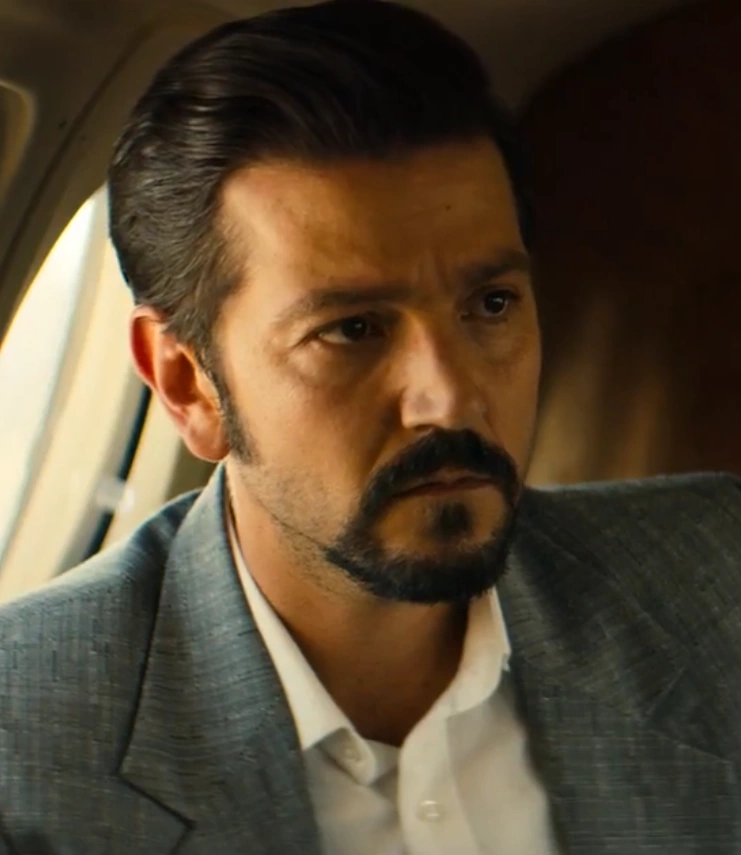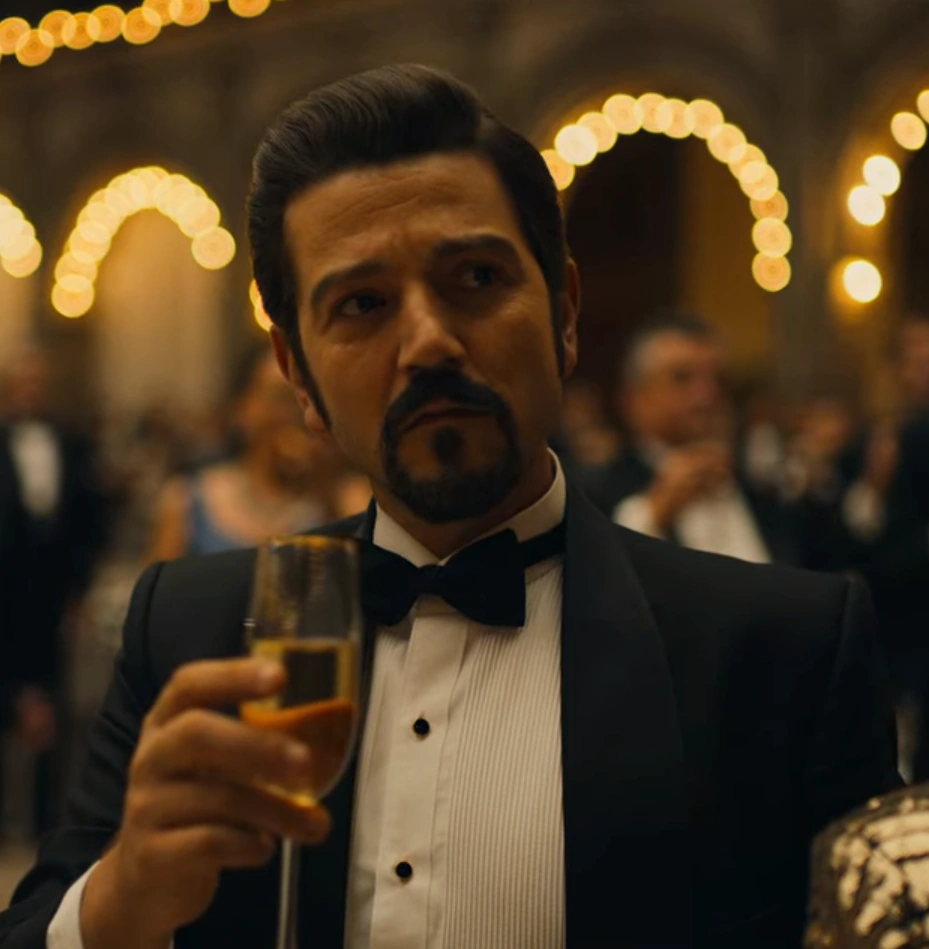Miguel Ángel Félix Gallardo is a name that resonates deeply within the history of drug trafficking in Mexico. Known as "El Padrino" (The Godfather), his influence on the drug trade has left an indelible mark on both Mexico and the United States. His story is one of power, corruption, and the rise of organized crime in the late 20th century.
Understanding the life and legacy of Miguel Ángel Félix Gallardo is crucial for anyone interested in the history of drug cartels and their impact on society. His role in establishing the foundations of modern drug trafficking organizations cannot be understated. This article delves into his biography, his criminal activities, and the long-term consequences of his actions.
Join us as we explore the life of this infamous figure, examining how he rose to power, the methods he employed, and the consequences of his actions. This article aims to provide a comprehensive overview of his life, supported by factual data and credible sources.
Read also:Rosanna Arquette The Multifaceted Talent Redefining Acting And Advocacy
Biography of Miguel Ángel Félix Gallardo
Early Life and Background
Miguel Ángel Félix Gallardo was born on January 28, 1946, in the small town of Culiacán, Sinaloa, Mexico. Culiacán, known as the "cradle of drug trafficking," has historically been a hub for illegal drug activities. Growing up in this environment, Gallardo was exposed to the drug trade from an early age.
His family was modest, and like many young men in the region, he sought opportunities to improve his financial situation. This led him to join the Mexican Federal Judicial Police (PJF), where he gained valuable knowledge about law enforcement operations. However, his career in the police force was short-lived, as he soon turned to the lucrative world of drug trafficking.
Key Facts and Data
| Full Name | Miguel Ángel Félix Gallardo |
|---|---|
| Birthdate | January 28, 1946 |
| Place of Birth | Culiacán, Sinaloa, Mexico |
| Nickname | El Padrino (The Godfather) |
| Occupation | Drug Trafficker |
Rise to Power: The Birth of the Guadalajara Cartel
Miguel Ángel Félix Gallardo's rise to prominence began in the late 1970s when he founded the Guadalajara Cartel. This cartel became one of the most powerful drug trafficking organizations in Mexico during its time. Gallardo's strategic mind and connections within law enforcement allowed him to establish a vast network of drug smugglers.
Under his leadership, the cartel controlled the majority of drug trafficking routes into the United States. He was instrumental in developing the relationship between Mexican cartels and Colombian drug traffickers, facilitating the flow of cocaine into North America.
Strategic Alliances and Expansion
- Gallardo formed alliances with Colombian cartels, particularly the Medellín Cartel led by Pablo Escobar.
- He expanded the cartel's operations by establishing key distribution points in major U.S. cities such as Los Angeles and Chicago.
- His ability to bribe law enforcement officials ensured the cartel's operations remained largely unchallenged for years.
The Role of Corruption in Drug Trafficking
Corruption played a pivotal role in the success of Miguel Ángel Félix Gallardo's operations. His connections with high-ranking officials within the Mexican government and law enforcement agencies allowed him to operate with relative impunity.
According to a report by the U.S. Department of Justice, Gallardo's cartel paid millions of dollars in bribes to ensure the cooperation of Mexican authorities. This systemic corruption facilitated the growth of drug trafficking and made it difficult for law enforcement agencies to dismantle the cartel's operations.
Read also:Alexander Bauer A Comprehensive Exploration Of His Life Career And Achievements
Impact on Mexican Society
The widespread corruption associated with drug trafficking had devastating consequences for Mexican society. Violence and instability increased as rival cartels fought for control of lucrative drug routes. The influence of cartels like the Guadalajara Cartel contributed to the erosion of public trust in government institutions.
The Downfall of El Padrino
The downfall of Miguel Ángel Félix Gallardo began in 1985 following the kidnapping and murder of U.S. Drug Enforcement Administration (DEA) agent Enrique "Kiki" Camarena. The incident drew significant attention from U.S. authorities and led to a joint investigation with Mexican law enforcement.
In 1989, Gallardo was arrested and sentenced to 40 years in prison for his involvement in the Camarena case. His capture marked the beginning of the end for the Guadalajara Cartel, although its legacy would live on through the fragmentation of his empire into smaller cartels.
Fragmentation of the Cartel
- After Gallardo's arrest, his organization splintered into rival factions, including the Tijuana Cartel and the Sinaloa Cartel.
- These factions continued to engage in drug trafficking activities, leading to increased violence and instability in Mexico.
Legal and Judicial Implications
Gallardo's legal battles have been a significant part of his story. His trial and subsequent imprisonment brought international attention to the issue of drug trafficking in Mexico. The case highlighted the need for greater cooperation between U.S. and Mexican law enforcement agencies.
Despite serving a lengthy prison sentence, Gallardo remained influential within the drug trade. In 2020, he was transferred to a maximum-security prison, sparking concerns about his continued involvement in criminal activities.
International Response
The international community, particularly the United States, has played a crucial role in addressing the issue of drug trafficking in Mexico. Increased collaboration between U.S. and Mexican authorities has led to the arrest and prosecution of numerous high-profile drug traffickers.
Social and Economic Impact of Drug Trafficking
The impact of drug trafficking on Mexican society has been profound. The rise of cartels like the Guadalajara Cartel has contributed to widespread violence, corruption, and economic instability. The social fabric of communities affected by drug-related crime has been severely damaged.
Economically, the drug trade has generated billions of dollars in illicit revenue, much of which has been funneled back into Mexico. This money has fueled further criminal activities and undermined legitimate economic development.
Efforts to Combat Drug Trafficking
Governments around the world have implemented various strategies to combat drug trafficking. These include:
- Strengthening law enforcement capabilities.
- Enhancing international cooperation.
- Addressing the root causes of drug addiction and abuse.
Legacy of Miguel Ángel Félix Gallardo
Miguel Ángel Félix Gallardo's legacy is one of both infamy and influence. His role in shaping the modern drug trade cannot be ignored. While his actions have had devastating consequences, they have also provided valuable lessons for understanding the complexities of organized crime.
Today, the story of El Padrino serves as a cautionary tale about the dangers of unchecked power and corruption. It highlights the importance of international cooperation and the need for comprehensive strategies to combat drug-related crime.
Lessons Learned
- The importance of addressing systemic corruption.
- The need for international collaboration in combating transnational crime.
- The significance of addressing the root causes of drug addiction and abuse.
Conclusion
Miguel Ángel Félix Gallardo's life and career are a testament to the complexities of drug trafficking and organized crime. His rise to power, the establishment of the Guadalajara Cartel, and his eventual downfall have had lasting effects on both Mexico and the United States.
As we reflect on his legacy, it is essential to consider the lessons learned and the ongoing efforts to combat drug-related crime. We invite you to share your thoughts and insights in the comments section below. Additionally, feel free to explore other articles on our website for more information on related topics.
Table of Contents
- Biography of Miguel Ángel Félix Gallardo
- Early Life and Background
- Key Facts and Data
- Rise to Power: The Birth of the Guadalajara Cartel
- Strategic Alliances and Expansion
- The Role of Corruption in Drug Trafficking
- Impact on Mexican Society
- The Downfall of El Padrino
- Fragmentation of the Cartel
- Legal and Judicial Implications
- International Response
- Social and Economic Impact of Drug Trafficking
- Efforts to Combat Drug Trafficking
- Legacy of Miguel Ángel Félix Gallardo
- Lessons Learned


